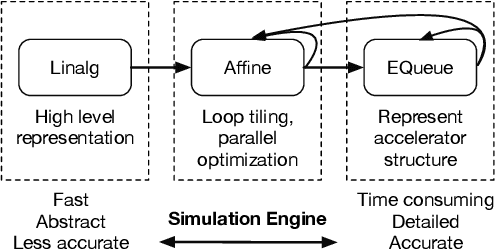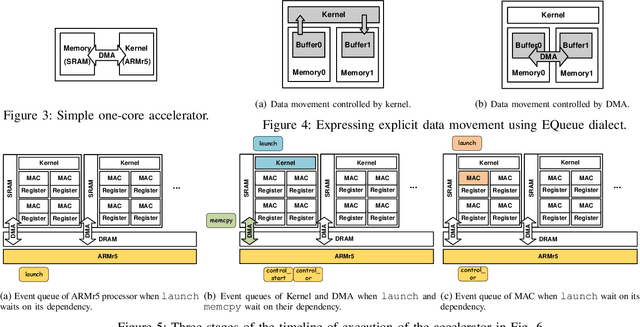Yuwei Ye
Compiler-Driven Simulation of Reconfigurable Hardware Accelerators
Feb 01, 2022



Abstract:As customized accelerator design has become increasingly popular to keep up with the demand for high performance computing, it poses challenges for modern simulator design to adapt to such a large variety of accelerators. Existing simulators tend to two extremes: low-level and general approaches, such as RTL simulation, that can model any hardware but require substantial effort and long execution times; and higher-level application-specific models that can be much faster and easier to use but require one-off engineering effort. This work proposes a compiler-driven simulation workflow that can model configurable hardware accelerator. The key idea is to separate structure representation from simulation by developing an intermediate language that can flexibly represent a wide variety of hardware constructs. We design the Event Queue (EQueue) dialect of MLIR, a dialect that can model arbitrary hardware accelerators with explicit data movement and distributed event-based control; we also implement a generic simulation engine to model EQueue programs with hybrid MLIR dialects representing different abstraction levels. We demonstrate two case studies of EQueue-implemented accelerators: the systolic array of convolution and SIMD processors in a modern FPGA. In the former we show EQueue simulation is as accurate as a state-of-the-art simulator, while offering higher extensibility and lower iteration cost via compiler passes. In the latter we demonstrate our simulation flow can guide designer efficiently improve their design using visualizable simulation outputs.
 Add to Chrome
Add to Chrome Add to Firefox
Add to Firefox Add to Edge
Add to Edge